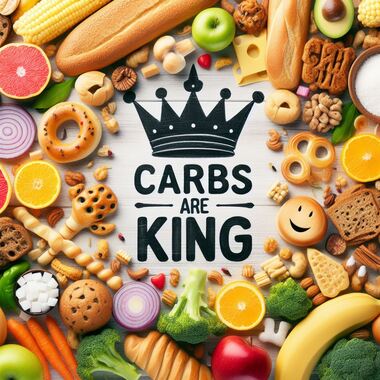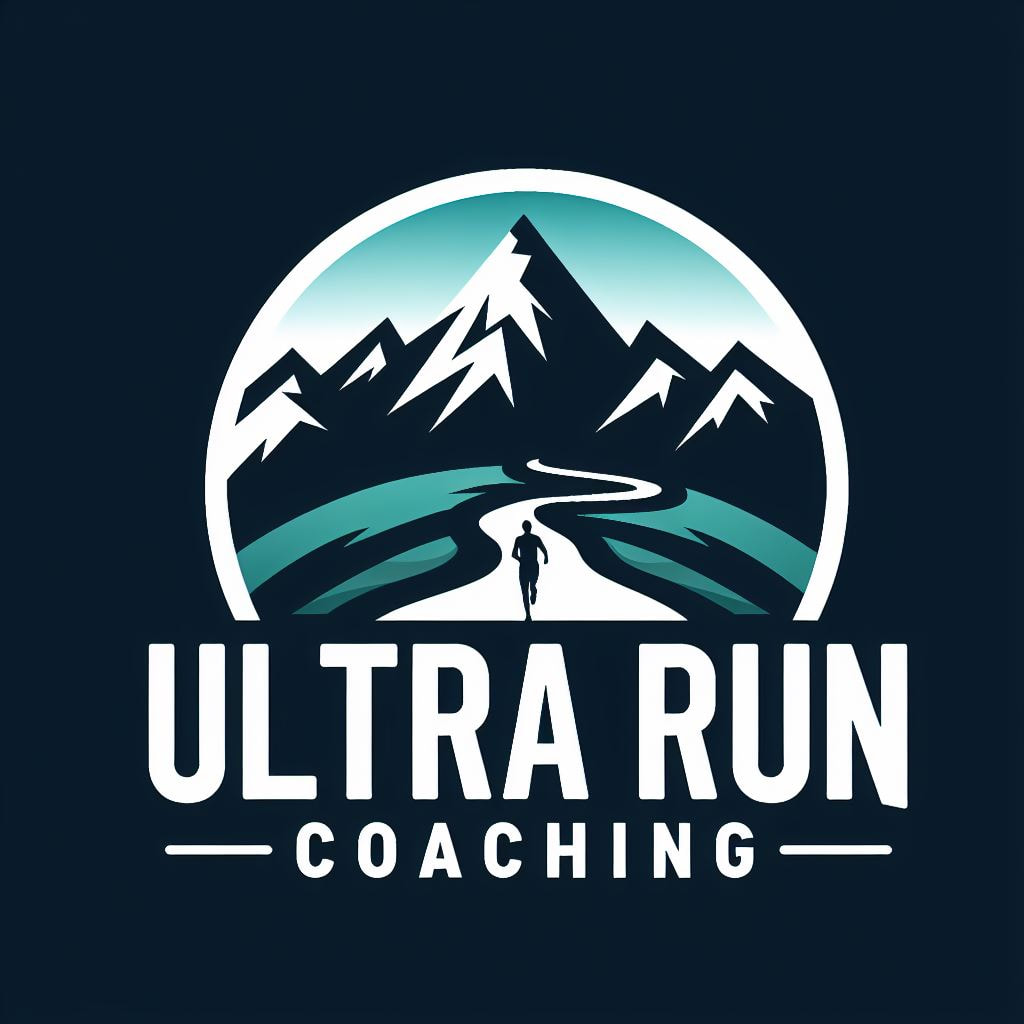|
In endurance sport, including ultra marathon running, carbs are king/queen. Carbs are our primary fuel source and the one that allows us to perform at our best. Yes we are always burning some percentage of our calories from fat, but maintaining optimal levels of blood glucose through the regular consumption of carbs during endurance running is the only way to perform at our best. Carbs are king/queen throughout the dayLet's talk about how to flourish in a carb world. First we want to eat a relatively high carb (CHO) diet to prevent low energy availability (LEA), relative energy deficiency in sport (REDs), and low carbohydrate availably (LCA) which all have negative health and performance outcomes (read more about this here) and keep our muscle glycogen stores topped up. Daily CHO needs for an ultra-runner are 6-12g/kg body weight. The lower end for athletes running an average of an hour a day and the higher end for athletes averaging 4+ hours of running a day. We want to make sure we spread our CHO consumption out throughout the day so we don't spend hours in low carbohydrate availability. This means carbs with breakfast, lunch, dinner, and snacks between meals (which all of us ultra runners should be having). Carbs are king/queen during exerciseDuring endurance exercise, especially over 90 minutes, we should be consuming CHO. How much CHO should we consume during exercise? The American College of Sports Medicine position stand is to consume 60g CHO/hour for exercise lasting 1-2.5 hours and 90g CHO/hour for exercise lasting longer than 2.5 hours. Research has shown that consuming more CHO (up to 120g CHO/hour) can be even more beneficial in terms of performance, reduced ratings of perceived exertion, improved mental state, decreased post-exercise muscle damage (DOMS), and improved recovery. Multiple transport carbohydrates are the most efficient way to consume and absorb CHO which means consuming a mix of glucose and fructose. You can read more about this in my article about Race Day Nutrition. Cyclists have been pushing higher and higher CHO intakes during training and racing and have seen performances increase. Ultra runners are following suit and experimenting with higher CHO consumption during training and racing. Over the years, I've gone from consuming 60g CHO/hour to 75g CHO/hour to 90g CHO/hour to 120g CHO/hour and not only felt better in training and racing but performed better and all without gastrointestinal (GI) distress. If you have not experimented with higher CHO intakes during longer training runs and races, I highly recommend it. The gut is highly trainable, and fairly quickly, but it does take practice. Costa RJS, Miall A, Khoo A, Rauch C, Snipe R, Camões-Costa V, Gibson P. Gut-training: the impact of two weeks repetitive gut-challenge during exercise on gastrointestinal status, glucose availability, fuel kinetics, and running performance. Appl Physiol Nutr Metab. 2017 May;42(5):547-557. doi: 10.1139/apnm-2016-0453. Epub 2017 Mar 22. PMID: 28177715.
Jentjens RL, Jeukendrup AE. High rates of exogenous carbohydrate oxidation from a mixture of glucose and fructose ingested during prolonged cycling exercise. Br J Nutr. 2005 Apr;93(4):485-92. doi: 10.1079/bjn20041368. PMID: 15946410. Jentjens RL, Moseley L, Waring RH, Harding LK, Jeukendrup AE. Oxidation of combined ingestion of glucose and fructose during exercise. J Appl Physiol (1985). 2004 Apr;96(4):1277-84. doi: 10.1152/japplphysiol.00974.2003. Epub 2003 Dec 2. PMID: 14657042. Nutrition and Athletic Performance. Medicine & Science in Sports & Exercise 48(3):p 543-568, March 2016. | DOI: 10.1249/MSS.0000000000000852 Stellingwerff T, Cox GR. Systematic review: Carbohydrate supplementation on exercise performance or capacity of varying durations. Appl Physiol Nutr Metab. 2014 Sep;39(9):998-1011. doi: 10.1139/apnm-2014-0027. Epub 2014 Mar 25. PMID: 24951297. Temesi J, Johnson NA, Raymond J, Burdon CA, O'Connor HT. Carbohydrate ingestion during endurance exercise improves performance in adults. J Nutr. 2011 May;141(5):890-7. doi: 10.3945/jn.110.137075. Epub 2011 Mar 16. PMID: 21411610. Urdampilleta A, Arribalzaga S, Viribay A, Castañeda-Babarro A, Seco-Calvo J, Mielgo-Ayuso J. Effects of 120 vs. 60 and 90 g/h Carbohydrate Intake during a Trail Marathon on Neuromuscular Function and High Intensity Run Capacity Recovery. Nutrients. 2020 Jul 15;12(7):2094. doi: 10.3390/nu12072094. PMID: 32679728; PMCID: PMC7400827. Viribay A, Arribalzaga S, Mielgo-Ayuso J, Castañeda-Babarro A, Seco-Calvo J, Urdampilleta A. Effects of 120 g/h of Carbohydrates Intake during a Mountain Marathon on Exercise-Induced Muscle Damage in Elite Runners. Nutrients. 2020 May 11;12(5):1367. doi: 10.3390/nu12051367. PMID: 32403259; PMCID: PMC7284742.
0 Comments
Leave a Reply. |
Matt'sTrail and ultra running thoughts, advice, and research. Archives
January 2024
Categories
All
|


 RSS Feed
RSS Feed